The fair data economy and the European approach towards the better use of health data
Dear participants joining us from across the world today.
First, let me thank you for this opportunity to speak to you this evening and share the European perspective on the fair data economy and the better use of health data.
At Sitra, The Finnish Innovation Fund, our focus is on the future – and not just any kind of future. Our vision is that Finland will prosper by building a fair, sustainable and inspiring future that ensures people’s well-being within the limits of the earth’s carrying capacity.
At Sitra, we work towards this goal with three thematic areas: sustainability solutions, fair data economy and democracy. Today, I will concentrate on the fair data economy Fair data economy The part of the economy that focuses on creating services and data-based products in an ethical manner. Fairness means that the rights of individuals are protected and the needs of all stakeholders are taken into account in a data economy. Open term page Fair data economy and specifically our work on health data in the European context.
***
For the future of healthcare, health data is worth gold. There is no denying the valuable role that health data plays in boosting research, fuelling scalable new businesses, and supporting innovative healthcare services to the benefit of everyone.
To this end, we need to be able to share high quality health data across sectors, borders and organisations.
Today, the vital importance of health data sharing is further highlighted by the Covid-19 crisis. This pandemic caught us all off-guard. Even though we had faced SARS one decade ago, we were not prepared to face a pandemic of this magnitude. It is very important that we manage the current crisis properly and protect people of all backgrounds. However, it is even more important that we learn from this crisis and are ready when – not if – the next pandemic hits us.
Managing public health threats, such as the current pandemic, is an obvious reason for the better use of health data. The Director General of the World Health Organisation together with the President of the European Council proposed a pandemic treaty this year in March. I was delighted to note that one part of this proposal was dedicated to “data sharing and research”, as it recognised the vital role of health data sharing in the common fight against a pandemic.
In addition to pandemic preparedness, there are other, equally important drivers for the better use of health data. An aging population and an increasing number of chronic diseases place a heavy burden on our healthcare systems not only in Finland but across Europe.
The challenge is a complex one but one thing is for certain – we cannot afford the quality of healthcare to fall. Thus, if we want to manage costs and improve the quality of life, we need to better use health data. And in order to better use health data, we need a common set of rules that are fair for all.
***
The European Union and its 27 member states share an internal market supporting the free movement of people, goods, services and capital. Similarly, many policy sectors have harmonised their process and product standards, further supporting the free flow of resources across borders and sectors in the EU.
However, the area of health is a specific case. Health policy remains still today the competency of the individual 27 EU member states. In simple terms, this results in a lack of uniformity in both healthcare services provided and the way we use health data in the EU. This lack of uniformity needs to be addressed if we wish to be prepared for the next shocks in healthcare.
The well-known General Data Protection Regulation, the GDPR General Data Protection Regulation (GDPR) Regulation (EU) 2016/679, the European Union’s ("EU") new General Data Protection Regulation ("GDPR"), regulates the processing by an individual, a company or an organisation of personal data relating to individuals in the EU. Open term page General Data Protection Regulation (GDPR) , has not harmonised the way that we use health data. On the contrary, the GDPR allows the EU Member States to use health data for public health purposes as they consider appropriate. Finland and some other progressive Member States have used this opportunity to create smart rules and processes to license access to health data in their national legislation. This might be good for a country like Finland but the differing approaches to licensing the use of health data from a Member State to another ultimately fragments the internal market and disrupts the free flow of health data in Europe. In the long-term, such fragmentation does not benefit anyone.
To tackle this problem, the European Commission is establishing the European Health Data Space towards the end of this year. In line with the EU’s Data Strategy, the initiative aims to harmonise and facilitate the cross-border access to health data for research, innovation and decision-making purposes all across the Union.
In addition to the European Health Data Space, there is discussion about the possibility of forming a Health Union, which would require changes to the EU’s founding treaties. By raising this issue earlier this year in April, German Chancellor Angela Merkel highlighted that fighting pandemics is one reason to seriously consider such an unprecedented change in our governing framework.
We were not prepared for Covid-19 and the chaos that followed. And the loss of citizens’ trust is a price we had to pay, as borders were closed, access to services were limited, mobility was restricted almost in an arbitrary manner, and the measures taken varied from a member state to another. If one country banned a vaccine while the neighbouring country continued using it, how can citizens know what is safe and what is not?
That leads me to the big question: How do we as a continent collect quality health data and allow evidence-based decision-making to protect the EU citizens?
***
At Sitra, we work towards a fair data economy. By fair, we mean that the data economy should be fair for all stakeholders: the society as a whole, private companies, the public sector and, last but not least, the citizens.
Can we afford a future in which individual qualities, such as one’s financial capacity, defines who benefits from data, algorithms and innovations?
The data economy, as we know it now, does not check all the boxes regarding fairness. We have seen examples where the data economy benefits only single companies and other times the governments – all for the disadvantage of us citizens, the service users.
Sitra is not alone on this journey towards the fair data economy. We are joined by multiple European organisations, such as Gaia-X and the MyData movement, and if you have followed the discussion on our side of the Atlantic, you would have noticed that the term “sovereignty” pops up repeatedly.
Sovereignty is a key concept in a fair data economy. It means that the control for data stays with the data subject concerned when data is being accessed and exchanged in the open ecosystems in data markets.
Related to the foundations of a fair data economy, it is important to raise the issue of disinformation and fake news – the “bad data”. They threaten not only our democracy but also our health. Take for example disinformation about vaccines, which is a growing problem with long-lived consequences. Diseases that we thought we had defeated might come back if children are not properly vaccinated. Also, with Covid-19, the heard immunity can only be reached if enough people get vaccinated.
We depend on good data and reliable information more than ever. Our societies can only be as strong as the trust that we have for them.
Decision-makers also depend on this good data. In order to make informed decisions on preventive and protective measures, we need high-quality, timely and interoperable health data. This is called the secondary use of health data, as the data used originates often from a professional patient care relationship.
To this end, Sitra works on harmonising the rules in Europe for the secondary use of health data. The project is called the joint action Towards the European Health Data Space, TEHDAS in short. We coordinate this project which includes 25 European countries with the aim of helping the European Commission and the member states to develop fair concepts for the secondary use of health data in Europe. I strongly encourage you to follow TEHDAS and their progress.
***
Public health and better quality of life are what we are after. If you take home one message from this session, I hope it is that data is the key to better health for all.
I hope that at the next HIMSS in Orlando we can continue the dialogue on these topics. By then, the European Union should also have published a new proposal for setting up the European Health Data Space. Sitra has a major role in preparing and promoting it and we would like to take this important topic to the wider international audience for discussion.
The mission of HIMSS is to “Reform the global health ecosystem through the power of information and technology”. I believe that HIMSS is the platform to raise also health policy related topics into discussion. You may also reach efficiently and effectively the large health technology industry which is sometimes neglected from important policy decisions. I believe in inclusive policymaking and industry should be among the key stakeholders to participate.
Therefore, I would like to end with a call for action. Take part in the dialogue about the use of health data and promote it for the benefit of us all.
And finally, I would like to welcome all of you to HIMSS Europe in Helsinki next year. Thank you.


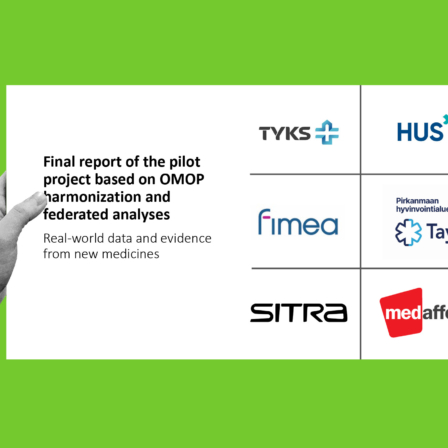
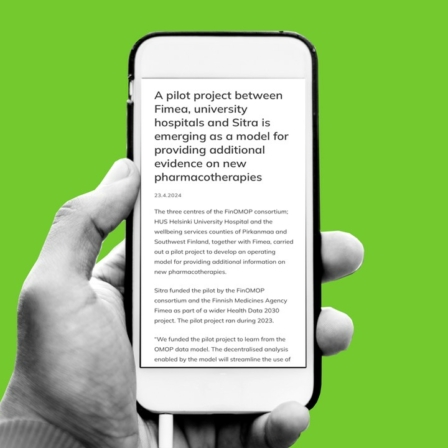
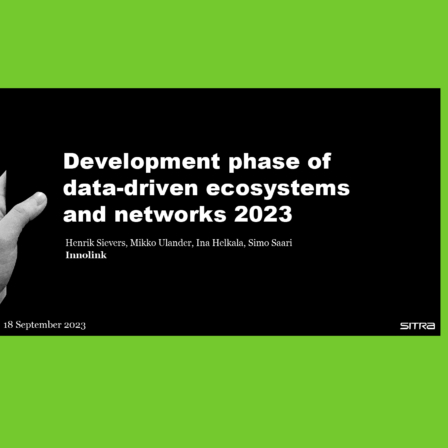
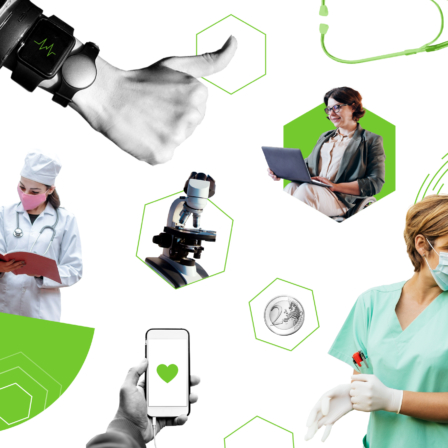
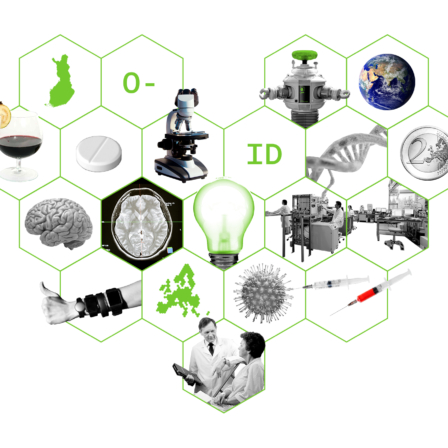
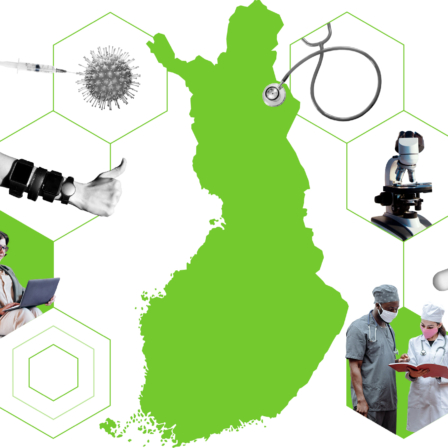
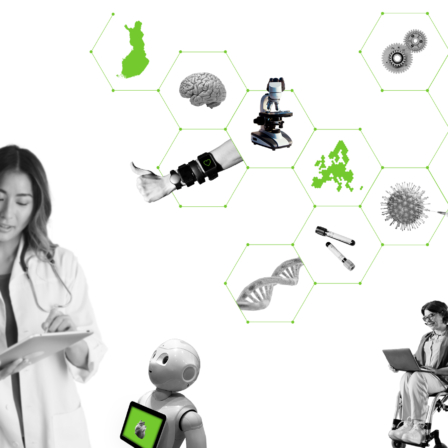
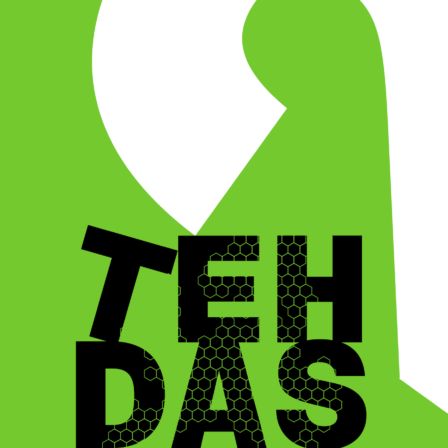
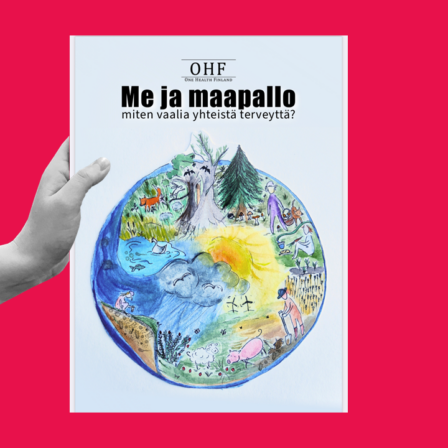


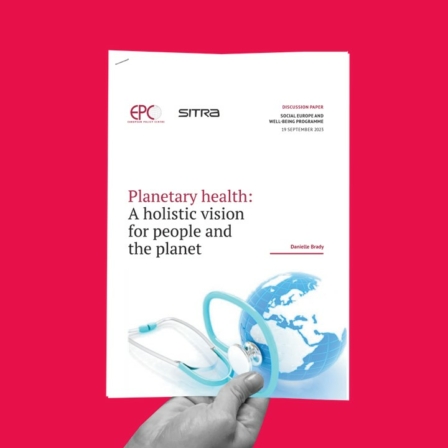
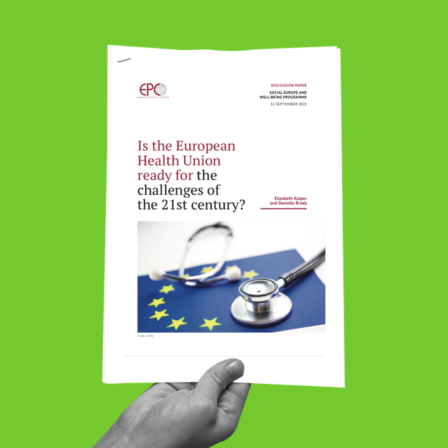

Recommended
Have some more.